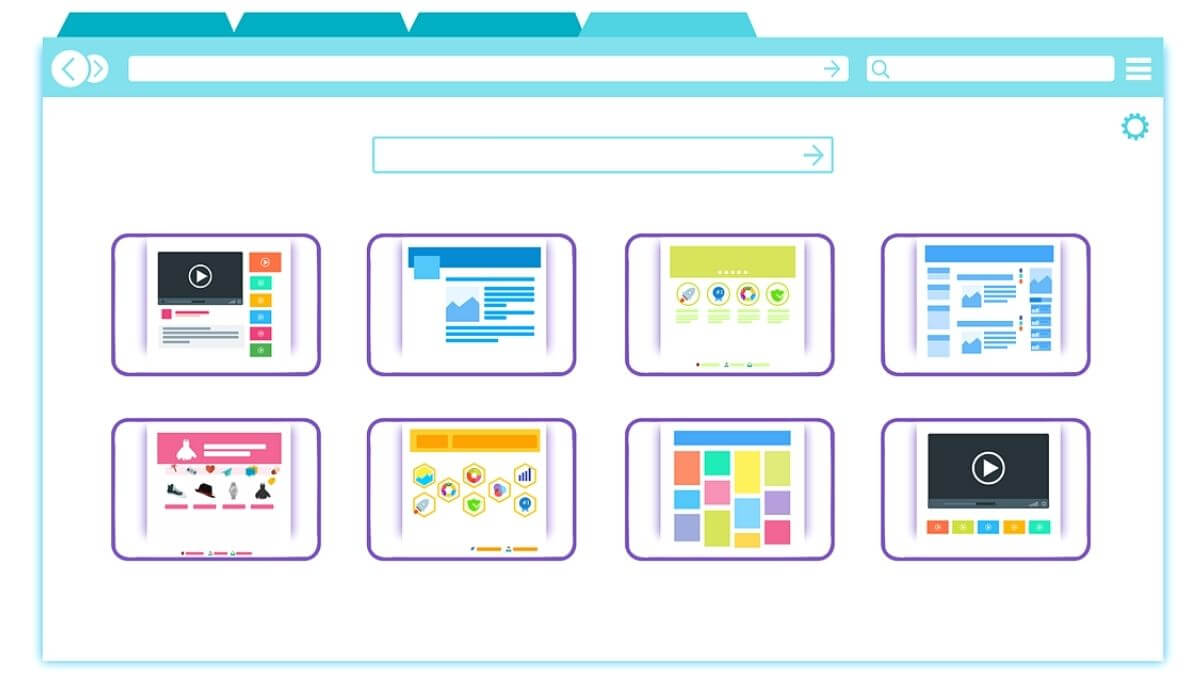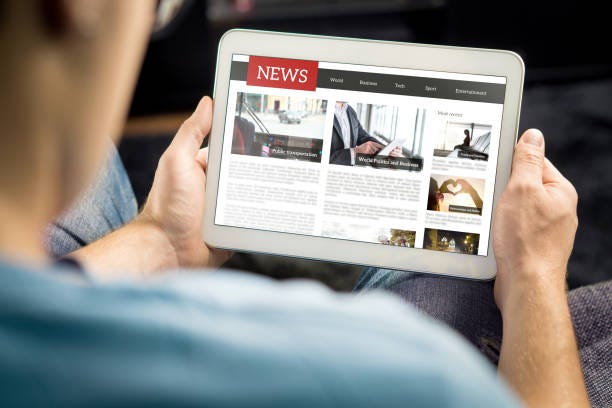An Unbiased View of Online News
An Unbiased View of Online News
Blog Article
What Does Online News Mean?
Table of ContentsThe Only Guide for Online NewsOnline News - Questions10 Easy Facts About Online News ShownThe Basic Principles Of Online News The 5-Minute Rule for Online News
Numbers for the proportion of individuals paying for online news were within the margin of mistake for both studies. Allow's very first consider people who have access to information that you would usually need to spend for. It makes feeling to begin below due to the fact that some individuals have access to paywalled news with free trials, by means of their task, and more.There are various kinds of access, yet the 3 most common are registrations to online information from a solitary brand name, subscriptions to a print/digital bundle from a single brand name, and a membership to multiple brands accumulated in one area. Of these, digital-only registrations to a solitary brand name are one of the most typical form of access in all 3 nations.
Paid information aggregators are relatively preferred in the United States, mostly many thanks to Apple News+, yet right now these are far less usual than memberships to single information brand names. As we saw in the Exec Summary, people mainly have accessibility to one of a tiny team of famous brands. In the US, over fifty percent of these people have access to either the New York City Times or the Washington Blog post, and in the UK, it's The Times or the Telegraph.
Some Known Details About Online News
Nonetheless, most of this team have gain access to due to the fact that they are paying for subscriptions with their very own money 75% in Norway and the UK, and 84% in the United States. For under-45s the figure is reduced. However amongst those 45 and over, the large bulk of those that have access are paying with their own money.
In the United States and specifically Norway, numerous authors have presented paywalls, which indicates more people will certainly be asked to pay possibly heightening a feeling of scarcity and developing a feeling that information could be worth spending for. In the UK, by contrast, just a fairly little number of magazines attempt to charge for news.
In this regard it interests contrast the different reasons subscribers give up the United States and United Kingdom for paying for on-line information. Generally, one of the most crucial variable is the distinctiveness and top quality of the material. In both countries, subscribers believe they are obtaining better information than from totally free sources.

The smart Trick of Online News That Nobody is Talking About
These added components appear to be specifically beneficial for retention as they develop practice and are less replicable in other places. For Norwegians as well the distinctiveness of content prevailed in addition to benefit and simplicity of use. 'Aftenposten is a major newspaper with terrific high quality', said one respondent, yet it was striking that 'supporting excellent journalism' is less of a motivation (21%) probably because conventional media electrical outlets are seen as less polarised in Norway.
In addition, around half of those who presently have totally free accessibility state that they might start paying if their open door goes out. This is encouraging, and probably much more motivating still is that these figures indicate retention rates that are similar to those for subscriptions to video clip and audio streaming services like Netflix and Spotify.
It can likewise be seen as a beneficial suggestion that people do not necessarily subscribe for life, and boasts concerning the number of 'new subscribers' may not be informing the whole tale (Online News). There's considerable 'spin' around, as numerous people finish their free trials before they need to pay, or merely cancel their memberships to invest their cash on various other points
Female, 37, Norway It cost way excessive and I can obtain round the paywall. Male, 36, United States Too expensive, felt there was nothing I couldn't obtain free of charge on Apple Information. Women, 19, UK In the UK, the number of people that used to have access to paid information (10%) is close to the variety of individuals that presently have accessibility (9%) with the equivalent figures from the US and Norway higher still (albeit less than the number of people with gain Web Site access to).
An Unbiased View of Online News
As we have actually already seen, existing clients are reasonably pleased, however with revenue from electronic marketing unsure numerous publishers will be wanting to boost the number of new subscribers. In comparing our three countries we see some fascinating differences that can notify author strategies. Initially, we observe a very high percentage (40% in the United States and 50% in the UK) who say that nothing can convince them to pay.
In Norway, where passion in information tends to be higher and where complimentary information is much find more more limited only 19% claim they could not be persuaded. Cost and benefit are some of the key elements that might make a distinction. In Norway, a third (30%) claim they may subscribe if it was more affordable and 17% if they can pay to access numerous websites from a single payment.
Publishers have progressively been offering differential rates to get company from those not likely to pay full price (e.g. abroad clients and pupils). Paying to prevent invasive promotions is an additional possible route for authors, with around one in 7 respondents in all 3 nations saying this this may lure them to subscribe.

Not known Incorrect Statements About Online News
The anxiety of losing out can be an effective barrier. Some outlets now ask visitors read review to sign up with them in order to have the ability to access a handful of short articles completely free. Numerous journalists would certainly see this as a reasonable trade-off, yet the general public are much more skeptical. In all 3 nations less than half believe registering is a fair trade, yet it's likewise clear that people are not strongly opposed either.
In between 13% and 22% in our three countries claim they signed up to access news web content in the in 2014. Some are also making use of various other techniques to get around paywalls such as resetting cookies, transforming their internet browser settings, and even downloading and install dedicated software program. Just a third say they have actually ever before tried to do something like this, as it calls for a certain level of digital literacy, and numerous are most likely unaware that is an opportunity.
People have various sights about the civil liberties and misdoings of attempting to avoid paywalls. Few would suggest that this is always understandable, however some people do have bookings around crucial public-interest journalism only being readily available to those ready and able to pay for it. A paywalled expos of the UK federal government's handling of the coronavirus episode by the Sunday Times brought about a warmed argument about the problem on Twitter, with some trying to freely share the complete article.
Report this page